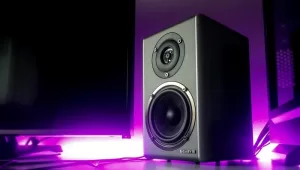Your Morning Espresso Can Finance Your Champagne Dreams and Other Tax Breaks You Never Knew Existed

Worried about the impact of taxes on your business’s income? You are not alone!
Taxes are a major concern for nearly 60% of US-based small business owners – and the proposed corporate tax increase would make the situation all the more difficult for over 1.4 million small enterprises.
But tax season does not have to be so daunting – especially when you get to know the vast range of expenses that can be deducted from your taxes! Learn about some of the lesser-known tax breaks for small businesses below.
Business Expenses: An Overview
If you are a business owner, you are familiar with the concept of spending money to make money.
So, when the opportunity to take a prospective client to lunch comes around or you find space in your budget to improve your home office for productivity, you should not think twice about investing money. But do you also need to pay taxes on these essential expenses?
It all comes down to understanding what the definition of “business expenses” issued by the IRS entails. Officially, business expenses – which traditionally include office rent, utilities, and inventory – are deductible from your taxable amount if they are “ordinary and necessary” for your business to run.
However, with the advent of eCommerce and fully remote businesses, much has changed in terms of what constitutes a tax break. If you are an online seller, referring to an always up-to-date master list of tax write offs can help you keep up with changing guidelines and make your expenses work harder for you.
Let’s look at some of the tax breaks that can finance your Champagne Dream!
Your Morning Coffee Can be 100% Deductible
Missing out on tax deductions is among the main challenges SMBs face in managing financial records. So, let’s start with one of the most understated but deductible costs business owners foot: their morning coffee!
Food and drink expenses that are deemed to be necessary for your business represent a valuable write-off. Your morning coffee will fall within this category if:
- You are having coffee with a client
- You are providing coffee for a staff meeting or staff party
- You are buying coffee for the office
- You are having coffee when traveling for work
- You are providing coffee as a gift or promotional material (in this case, it will be considered a marketing expense)
Generally, costs related to coffee purchases are 50% deductible but increased to 100% for 2021 and 2022.
Business Meals Are Tax Write-Offs
Similarly to coffee-related expenses, business meals are considered a tax write-off if they are ordinary and necessary, and:
- Involve the business owner or other stakeholder
- Are not extravagant or lavish
- Serve to build business relationships
For example, business meals include lunch with a client, prospective client, potential referral, or coworker. Networking opportunities, such as with industry professionals, are also considered deductible expenses.
Similar to coffee-related expenses, business meals are usually 50% deductible. However, as part of the US Covid-19 relief program, the 2021 Consolidated Appropriations Act issued a “temporary allowance of full deduction for business meals” for 2021 and 2022.
Claiming Your Home Office Expenses
If you are a remote worker, online seller, or digital entrepreneur, your home office is a lifeline. And, as the number of professionals switching to work from home rises, the tax system continues to evolve.
Today, you can write off the home office expenses related to your business, including:
- Part of your rent
- Desktop, laptop, and other devices
- Home office furniture, paint, and light fixtures
- Other costs such as utilities, water, and WiFi
If you work from home, you will need to know what is the “business-use percentage” of your rent and bills – which is the only percentage deductible as a necessary expense. To calculate this, you will need to:
- Divide your home’s square footage by your home office’s square footage
- Multiply it by 100 to obtain a percentage value
- Apply this to your monthly rent and bills to understand what percentage is destined for your business
- Multiply this figure by the number of months you use your home office a year
Supporting Lifelong Learning
Wondering whether you should invest in training courses and industry education? Keep in mind these statistics:
- Over 40% of professionals successfully improved their skills during the pandemic
- Nearly 39% of professionals believe their jobs will become obsolete within 5 years
So, yes, investing in education is vital. Luckily, if your training, education, upskilling, and personal development courses are related to your current business or industry, you can deduct the cost from your taxable amount.
Keep Yourself Up To Date – and Avoid Leaving Money on the Table!
Not knowing what is considered a tax write-off can cause you to leave money on the table. And even a few hundred dollars can make a difference between failure and success – especially if your business is just getting started!
Make sure to keep yourself up to date and spend time reviewing and recording your expenses to deduct them from your taxable income.















